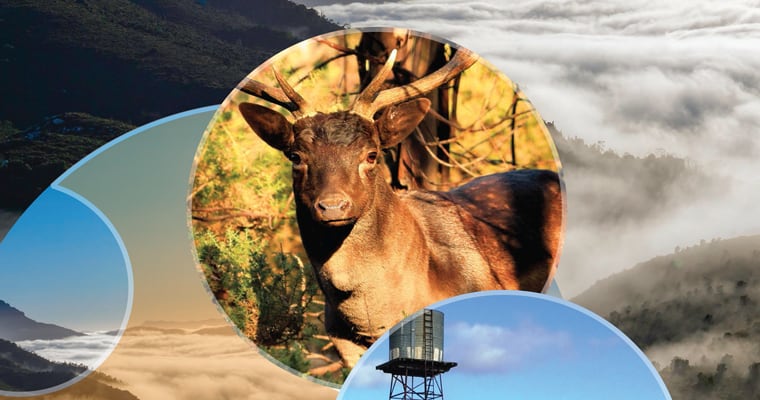Iconic Australian landscapes such as Kakadu and Lamington national parks will remain at the mercy of newly invading pests and diseases if new biosecurity and quarantine laws continue to be dominated by agricultural interests, the Invasive Species Council warned today.
“For more than a century Australia’s natural environment has been sidelined by agriculture when it comes to national biosecurity and quarantine laws,” Invasive Species Council CEO John DeJose said today.
“Reform of national biosecurity laws in the Australian Parliament offers us the chance to redress this imbalance, but will fail if industry continues to ride roughshod over the protection of our natural environment.”
Since the Quarantine Act of 1908, Australia’s defences against newly invading pests and diseases have been heavily weighted in favour of protecting primary industry profitability.
This has given Australia some of the toughest quarantine laws in the world, but left our natural environment exposed to dangerous invasive species.
“Invasive species have caused the extinction of 40 Australian mammals, birds and frogs, and are second only to habitat loss in the numbers of native species and ecosystems they threaten,” said Mr DeJose.
“If we were as tough on emerging environmental pests and diseases as we are on agricultural threats, many threatened native species and ecological communities would be safer today.”
In the rush to exploit Australia’s vast rangelands, governments imported exotic grasses to increase productivity at the behest of the pastoral industry but many have now become damaging weeds.
High biomass gamba, mission, para and hymenachne grass species, introduced for pasture improvement, are now destroying ecosystems and endangering native species.
In invaded landscapes, they fuel the frequent, intense, large-scale fires that are driving mammal extinctions right across northern Australia.
Fire, weeds and feral animals have become the ‘terrible trio’ responsible for species extinctions sweeping the Top End, previously regarded as a safe haven from such declines.
“The nation is reaping the bitter harvest of ecosystem destruction incurred by a one-eyed government fascination with the economy at the expense of the environment,” said Mr DeJose.
“Industry pulls in profits while the taxpayer is left with the clean-up bill.
“If Australia took protecting its environmental health as seriously as it takes the protection of its agricultural health, the nation would be much better defended against the rising tide of invasive species.
“Iconic places from the Kimberley and Kakadu to the Wet Tropics and Lamington National Park, already under siege from alien pests, weeds and disease, are certain to have more threatening impacts to deal with in future.”
About 30 weed species a year slip through Australian quarantine and increased travel and trade under globalisation is adding to these risks.
As far back as 2008 the Invasive Species Council warned the Federal Government of the risk posed to Australia’s natural environment by the deadly plant-killing disease myrtle rust. Yet established contingency plans were not followed when the pathogen breached national security in 2010.
Critics fear the Federal Government failed to acknowledge the threat so that it could avoid paying for eradication.
“At least 15 threatened plant species, from the Wet Tropics to Bass Strait, are now in greater danger of extinction because of this disastrous incursion, which in just two years has infected a vast area of Australia’s east coast,” said Mr DeJose.
“And now, with myrtle rust breaking out nearby, it is just a matter of time before the Fraser Island World Heritage Area falls prey to what could become Australia’s worst environmental pathogen.”
The Invasive Species Council is calling on the Federal Government to ensure the protection of the country’s environmental health gets equal billing with agricultural protection under new and improved quarantine and biosecurity laws.
It wants the new laws to:
Ensure transparent decision-making guided by independent science.
Establish systems specifically aimed at stopping environmental invasives that reach the same level as that enjoyed by industry.
Harness the intellectual firepower of the community environment sector in shaping invasive species policy and responses.
Adopt the ‘polluter pays’ principle to fund environmental restoration.
“The new Biosecurity Bill must put the environment centre stage if we are to reverse the rise in invasive species endangering the nature of Australia,” Mr DeJose said.
For comment
John DeJose, Invasive Species Council CEO – 0433 586 965.









